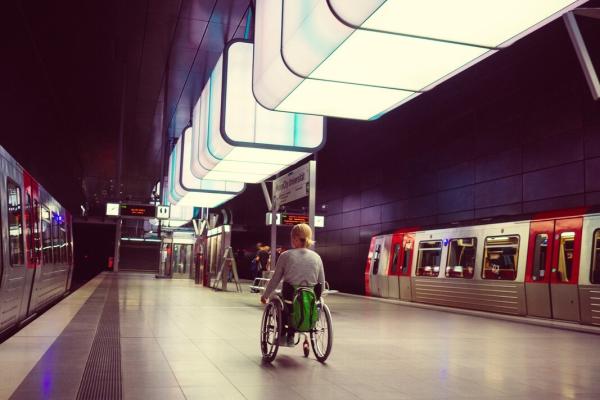
Under the Surface: The Infrastructure and Systems Powering Active Mobility
Unlike traditional webinars, these are interactive discussions centred on participant contributions and city-to-city exchange. They bring together cities, networks, and experts to analyse success factors, explore shared challenges, and compare implementation approaches across different urban contexts.
Each webinar in the Policy Lab addresses the key challenges and success factors identified throughout the study, reflecting one of its four thematic lenses — accessibility and inclusion, data and technology, behaviour change, and increasing the modal share of active mobility in cities — and transforms city experiences into shared learning and practical policy guidance.
Webinar 1 - Under the Surface: The Infrastructure and Systems Powering Active Mobility
This webinar will explore the role of infrastructure and operational measures in promoting active mobility. Discussions will focus on how cities have implemented physical and organisational changes to improve safety, accessibility, and efficiency in their active mobility schemes.
Why this matters
This session pressure-tests practical ways cities deliver protected networks, safer crossings, well-functioning interchanges and day-to-day operations that make walking and cycling work seamlessly with public transport. It builds on the Lab’s lenses of inclusion, data/tech, behaviour change, and barriers to modal shift.
Format
The webinar lasts 1 hour and 45 minutes. It will start with a first part of 45 minutes focusing on the discussion of burning topics, followed by a second part of an additional 45 minutes addressing the presentation and feedback. A break of 15 minutes will be scheduled between both sessions.
Who should attend
The webinar is open to city practitioners, urban authorities, institutional stakeholders, and thematic experts — it is a public event, and everyone is welcome to participate.
What you’ll learn
-
How to align street design, traffic management and hub design so active modes are the default first/last mile
-
How operational choices and governance coordination speed up delivery and reduce friction across departments
-
What data cities are using to target safety, continuity and efficiency, and how they instrument before/after results
Invited Speakers
City contributions
-
Coimbra (EUI COIMBRA ST): New cycling lane linking the university area and UNESCO site down to the river, improving north–south continuity and destination access.
Expert contributors
- Roadto50% — Federica Raiti, Vice-President
- European Cyclists’ Federation (ECF) — Fabian Küster
- EUROCITIES — Thomas Mourey
Practical information
Accessibility and language
The webinar will be hosted online with live transcription. Please indicate any accessibility needs at registration.